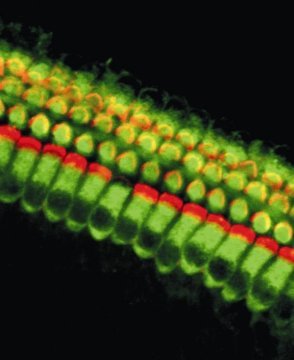I decided to try out the keto diet to see what all the hype was about. People claim it is the ultimate fat-loss diet, others say it can reverse type 2 diabetes. I had to put it to the test to see if it would help me manage my type 1 diabetes. The thing that makes this experiment so eye-opening is, as someone living with type 1 diabetes I get to see objective insights every day into my blood sugar levels and insulin requirements.
Before I start, I need to make something clear. I respect everyone trying to achieve optimal health. Whether you’re keto, high-carb or anything in between, the choice is yours. My only aim is to improve people’s lives. I feel a duty to share my experiences and highlight the scientific evidence out there supporting it because people need to be aware of the risks and benefits of any diet before getting into it. I’m not selling anything. I’m not promoting anything. I have no hidden agendas. I simply want to find the healthiest way to live which will allow people to feel happy and fulfilled.
My keto experience
After two months on a ketogenic diet, I was very lean, fit, had great focus and concentration, could go long hours without eating, had flatline blood sugar levels, and achieved my lowest ever insulin requirements. At that point, it seemed like keto was indeed a magic bullet and I was a huge proponent of that way of eating. Fast forward another two months, everything took a turn for the worse.
I noticed that every time I ate foods containing carbohydrates, my blood sugar went very high, and that frustrated me. I also noticed that my cholesterol went up to 6.4 mmol/L. Sure, I was very efficient at burning fat and ketones for energy but my tolerance for foods containing carbohydrate went down noticeably, even after a workout when I’m usually my most insulin sensitive. Not only could I no longer eat the smallest amount of carbs (a banana) without a large blood sugar spike, I noticed that I needed more and more insulin in order to bring my blood sugar back down into the normal range. It would have been easy to demonise carbs as the culprit for the sugar spike, but that would have been a case of mistaken identity. Here’s why: Even if I didn’t eat anything and my own body produced glucose endogenously i.e the liver dumped glucose into my bloodstream via a process called gluconeogenesis, I couldn’t fix my high blood sugar levels because I was resistant to the insulin I injected. It felt like I was on my way to developing type 2 diabetes (type 1 is more than enough, thank you). It was a very frightening reality and a huge wake-up call.
The keto diet does not necessarily cure type 2 diabetes
Just because keto can lead to stable blood glucose levels, low insulin levels, and patients can come off their medications does NOT necessarily mean it reverses type 2 diabetes. It may seem like they’ve reversed their diabetes but really they’re just managing symptoms because the minute they eat a carb-rich meal their blood sugar can go very high.
It’s like a celiac patient removing gluten from their diet and seeing their symptoms disappear. Does that mean they cured their celiac disease? Of course not, they just removed the trigger that leads to symptoms without addressing the actual cause of the disease. As soon as they eat gluten again, their symptoms come back.
The ketogenic diet is a short-term, Band-Aid solution to minimise blood sugar fluctuations but does not reverse the underlying condition of insulin resistance. In fact, evidence-based research shows that eating a low-carbohydrate diet actually worsens insulin resistance. By almost completely removing carbs from the diet, you’re simply removing the trigger that leads to symptoms (hyperglycemia) without addressing the actual cause. Then when you add carbs back in, your body can’t tolerate them, which makes it seem like carbs are ‘bad’ for you, but really they’re the victim of somebody else’s crime. After spending hours and hours down a rabbit hole of research, studies show that the real culprit is the very high levels of saturated fat found in meat, bacon, eggs, butter, coconut oil etc, which can lead to a buildup of fat inside the liver and muscle (called intrahepatic and intramyocellular lipids, respectively). When lipids accumulate in tissues where they don’t belong it can cause the cells to become dysfunctional, leading to insulin resistance and impaired glucose tolerance, as shown by this study. Sure the human body can convert excess glucose to fat, but the conversion of glucose to lipids via ‘de novo lipogenesis’ happens to a very small degree, and those newly made lipids make up a very small percentage of intramyocellular lipids, as shown by this study. Furthermore, insulin has been wrongfully demonised as a ‘fat storage hormone’. Sure, one of the physiological properties of insulin is lipogenesis (fat storage) but when you minimize your intake of dietary fat, the impact is minimal. The reality is, insulin levels in the normal physiological range is required for survival. Insulin is not the enemy that many low-carbohydrate advocates claim.
Insulin resistance is a silent disease. Most people don’t know they have it because they don’t need to monitor their blood sugar levels or inject insulin on a daily basis, but I do. As someone living with type 1 diabetes, I get objective insights every single day. I see first hand the effects of different lifestyle variables on my insulin and blood sugar control. Sure, everyone is different so don’t just take my word for it. Look it up for yourself. The science is out there (and has been for decades). High-fat diets have been shown to induce insulin resistance and reduce glucose tolerance. The evidence is eye-opening. Insulin resistance can affect anyone and everyone, diabetic or not. It doesn’t discriminate.
Low carb diets work but…
I’m not denying that a low carb approach can lead to weight loss, stable blood glucose levels, reduced HbA1c, low total insulin requirements and overall improved diabetes management. In fact, I agree! I followed a low carb approach for 8 years with great results. I achieved a 70% reduction in total insulin requirements and very stable blood glucose control. But my point is, those biomarkers say nothing about one’s insulin sensitivity and carbohydrate tolerance. When you become primarily fat-adapted you lose metabolic flexibility and can’t tolerate even small amounts of carbs. To me, that doesn’t sound optimal when some of the healthiest foods known to humans are avoided on a keto diet. Some say the mechanism is insulin resistance, others say it’s enzymatic, regardless of the mechanism there’s no denying that carbohydrate tolerance goes down. I’ve even seen world-leading keto experts admit that the keto diet induces a state of temporary “insulin resistance” or “glucose intolerance”.
I don’t have a problem with the physiological state of ketosis. You can achieve ketosis by fasting, following Bernstein’s approach, or even doing a plant-based keto diet. I have concerns with the modern keto diet because it’s very high in saturated fat and I don’t think bacon, eggs, butter and coconut oil should make the bulk of your daily calories especially when they’re replacing known healthy foods like fibre-rich, nutrient-dense, and antioxidant-rich fruit, legumes and starchy vegetables.
The solution
Having made the connection between lipids and insulin resistance, I knew I had to make a change. I looked into the science and indeed it shows that high-carbohydrate, low-fat feeding can improve glucose tolerance and lowering of free fatty acids can improve insulin sensitivity. So I decided to embark on a journey to see if removing fatty animal-based foods altogether and eating more carb-rich plant-based foods would reverse the metabolic damage I had caused. I immediately embarked on a strictly whole-food-plant-based journey with the guidance from world-leading plant-based diabetes experts, Robby Barbaro and Cyrus Khambatta at ‘Mastering Diabetes’.
I dropped my fat intake from 75% of daily energy to between 15-20%. I removed all animal foods and oils from my diet. I focused on eating healthy fats from avocados, nuts, and seeds. I also added whole grains and legumes back into my diet (both of which I hadn’t eaten in nearly seven years since following a paleo approach) and an abundance of all types of fruits. Within 48 hours my insulin sensitivity started to return to normal. Within 1-2 weeks my carbohydrate intake was the highest it had been since being diagnosed with diabetes, and my insulin use dropped dramatically.
As I write this article, I’ve been strictly plant-based for 4 months and the results have been astonishing. I’ve achieved my best ever insulin-to-carb ratio, and it feels like I’ve regained control of my health. What started as a plant-based journey toward personal development and health has turned into something so much bigger. The positive impact I’m having on myself, the people around me, environmental sustainability, and animal welfare give me so much fulfilment and joy. I cannot wait to see where this journey takes me over the long-term.
The takeaway message
The ketogenic diet does not necessarily cure type 2 diabetes but rather it manages the symptoms. Normal insulin and blood glucose levels in the absence of carbs is not an indication of reversing type 2 diabetes. However, normal insulin and blood glucose levels in the presence of carbs is a true indication of gaining insulin sensitivity and reversing type 2 diabetes.
If you can stick to a keto diet for a lifetime and it helps you to manage your diabetes symptoms and ultimately avoid the tragic long-term complications of diabetes then I’m all for it! Good for you. But for most people out there it is unsustainable in the long-term, it may increase your risk of developing other chronic diseases and may even worsen your carbohydrate tolerance.
The good news is, there’s another way! Type 2 diabetes can absolutely be reversed and cured. I’ve seen it done over and over again on a whole-food plant-based approach. Patients are achieving non-diabetic HbA1c results, stable blood glucose levels, normal insulin levels, and are coming off all medication – all while eating unrefined healthy carbohydrates. In my eyes, that is the true reversal of type 2 diabetes and insulin resistance.
[“source=bodyandsoul”]
























